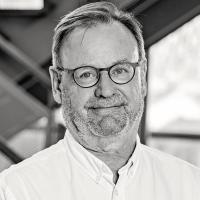Small-scale criminal ended up carrying out Paris-style attacks
After the Copenhagen gun attacks against the artist Lars Vilks at Krudtønden Cafè and at the synagogue in central Copenhagen, attention is focusing on the 22-year-old suspected perpetrator who was shot and killed by the police the morning after the attacks.
The man was already known to the police and the Danish Security and Intelligence Service (PET), but mostly for petty crime and gang relations.
- In January he was released from prison after having served a sentence for a knife attack, and the information that we currently have, does not depict a person who was on a religious mission, says Lars Erslev Andersen, senior researcher at DIIS.
- He was released a few weeks ago, and now he suddenly appears as a holy warrior. That is surprisingly fast and it suggests that we are not dealing with a strongly religious man using his religion to become a terrorist. Instead, it seems that we are dealing with a man who used to be a small-scale criminal who commits a terrorist act because he thinks it makes him seem cool. However, this is an act of terrorism because he attacks an event in support of freedom of speech and shows his anti-Semitism by killing a man in Krystalgade, says Lars Erslev Andersen to the Danish Broadcasting Corporation.
Inspired by Paris
The Copenhagen attacks have several things in common with the attacks on the French satirical weekly newspaper Charlie Hebdo and a Jewish supermarket in Paris on 7 January. In both Copenhagen and Paris, the attacks came in 2 waves: First, an attack against a place or an event related to the Muhammad cartoons, then an attack against Jews. And the suspected perpetrator was in most likely inspired by the events in Paris.
- They are encouraged to act on their own by global groups which also suggest various methods of carrying out attacks. We have seen a rise in this kind of inspiration since 2010, explains Lars Erslev Andersen.
We must focus on social problems
In both cases it seems that the perpetrators were born and raised in France and Denmark, respectively, and that they have been radicalized through criminal communities. Therefore, it is important that preventive strategies target this group, Lars Erslev Andersen points out.
- We have focused a lot on fighters returning from Syria, and so we should. But we should also worry about threats coming from elsewhere. We pointed this out in connection with the attacks in Paris which were also not carried out by fighters returned from Syria, but by people motivated to become holy warriors via criminal communities. The difference is that the Paris terrorists had been part of a radicalized environment for years – this does not seem to be the case in Copenhagen.
- When making strategies for preventing terrorism we need to pay much more attention to social problems instead of focusing on ideology, which we have done to a large extend here in Denmark. It is obvious that most of those who wake up one morning as holy warriors are dropouts, people who have problems with the authorities or are criminals and influenced by fellow prisoners, says Lars Erslev Andersen.
Hear the interview at P1 Morgen (Danish)
Watch the interview on DR2 Morgen (Danish)
DIIS Experts

